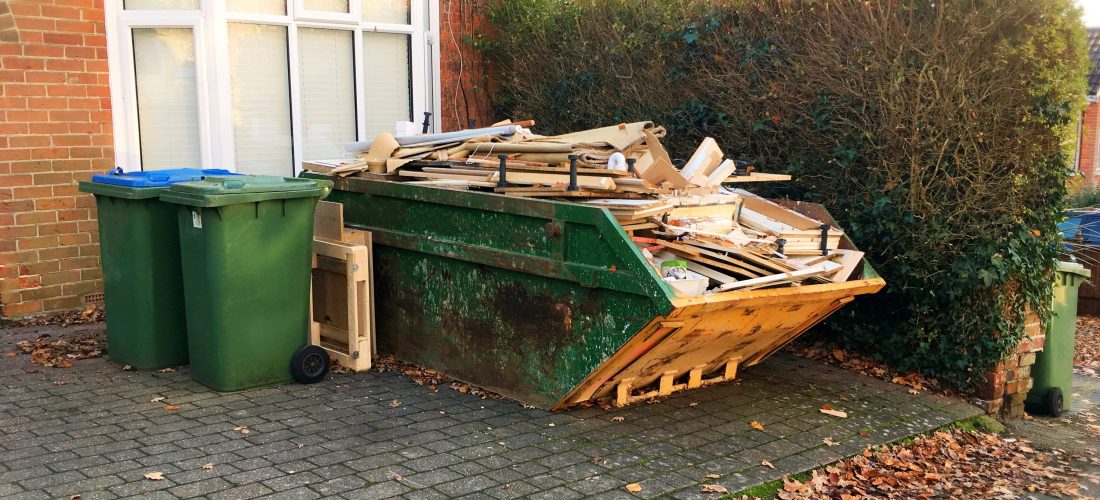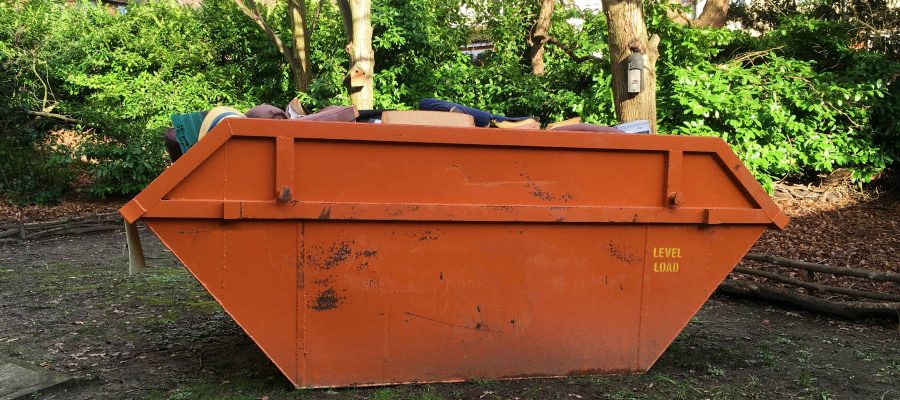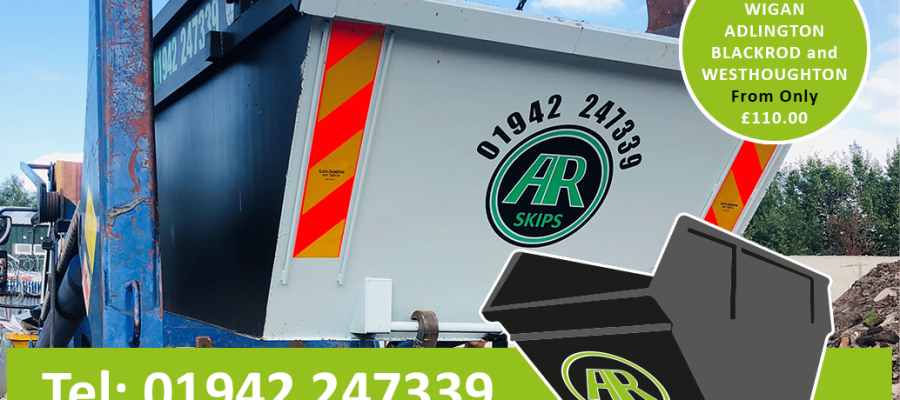
If you’ve got an upcoming construction gig, or even if you’re just planning a few home renovations, a builder’s skip can be an invaluable tool to have in your arsenal.
Big enough to house all your excess bricks, mortar, and other construction waste, you’ll be able to keep your workspace looking spic and span while also enhancing safety across your site.
A builder’s skip isn’t a one-size-fits-all solution for waste disposal, though; there are items you should never throw in there, with good reason. But what are these items, and if you can’t put them in your builder’s skip, where should you dispose of them? A&R Skips is here to help enlighten you, so keep reading to learn more.
What You Can Put in a Builder’s Skip
Here’s a quick list of everything you’re allowed to put in your builders’ skip for hire:
- Rubble – Including bricks, concrete, tiles and more.
- Soil – Including general garden soil and sand.
- Wood – Planks, old cabinets, window frames, etc.
- Metals – Pipes and radiators, etc.
- Plastics – PVC piping, etc (just be sure the plastic is non-hazardous).
- Aggregates – Gravel and ballast, etc.
- General dry waste – Packaging and non-recyclable household waste.
- Garden waste – Branches, leaves and more.
It’s worth noting that if you’re working for a company, and not on a DIY job, your employer may need to adhere to the rules of the new Simpler Recycling initiative, which affects the above. You can read all about that at the link.
What You Can’t Put in a Builder’s Skip
The following items are not suitable to be disposed of in a builder’s skip:
- Asbestos – This is highly hazardous waste and could be fatal if breathed in by workers or passersby.
- Paints, oils and solvents – Again, these are hazardous materials and can be corrosive or toxic.
- Batteries – They contain poisonous chemicals that are damaging to the environment.
- Fridge freezers – Containing heavy metals and contaminants, including potentially harmful chemicals, these appliances need to be recycled and disposed of properly to avoid pollution. Washing machines and similar electrical equipment, such as computer monitors, also apply here and need to be gotten rid of following the WEEE Regulations (Waste Electrical and Electronic Equipment).
- Tyres – These are not biodegradable and produce highly dangerous fumes if burned.
- Gas cylinders – Even if they seem to be empty, these containers can still pose a threat if crushed or exposed to heat.
- Plasterboard – On its own, plasterboard is relatively safe. But when combined with other biodegradable waste at a landfill, it can produce flammable gases.
- Medical waste – Needles, dressings and similar items pose a significant health and safety threat if not handled properly.
- Food waste – It may seem harmless, but food waste can attract insects and rats when left out.
- Fluorescent tubes and light bulbs – The mercury contained within these bulbs can become an environmental hazard.
- Upholstered seating and furniture – Some furniture may contain Persistent Organic Pollutants (POPs), so take extra caution when throwing out such items.
If any of these items are found to be in your skip hire, you may be charged extra by your chosen service provider, or they may refuse to take it entirely.
And this isn’t even the full list. To double-check what other materials you can’t put in a skip of this type, speak to the trained professionals at A&R Skips today, or contact your local council, who will be able to advise on specific prohibited items.
Why do these builder’s skip rules exist?
Primarily, there are restrictions on what you can dispose of in a builder’s skip due to health and environmental reasons, along with legal rulings local authorities need to follow to help promote a more sustainable way of living and working.
However, it’s also worth noting that certain landfills may charge a premium if they’re forced to house such items, as they’re more complex to deal with and require a specialist approach. A skip company refusing to accept your skip is also a possibility if you’ve not filled it with the correct waste type.
How big is a builder’s skip?
Generally, a builder’s skip is considered any skip sized between 6 and 8 yards in length. These skips are particularly large and are able to house up to 80 standard-sized bin bags on the upper end, or similar volumes of unbagged concrete, bricks and similar building site discards.
At A&R Skips, we’re home to a collection of 8-yard builder’s skips you can use to keep your worksite running safely and smoothly at all times.
How much is a builder’s skip?
You can currently expect to pay anywhere up to £360 to hire a builder’s skip for one week in the UK, at the time of writing.
But at A&R Skips, we’re always working hard to offer our customers – both domestic and commercial – the cheap skip hire they need at a price that doesn’t break the bank. That’s why our builder’s skips for hire are currently priced at a modest £290 per week – far below what you’d expect to pay with other skip hire companies.
Book your builder’s skip online with A&R Skips
Need to arrange builder’s skip hire in Wigan or the surrounding areas? You’re in the right place.
Book your skip online with A&R Skips today. Alternatively, get in touch with our friendly team if you need any advice on certain items or permits for skips.



